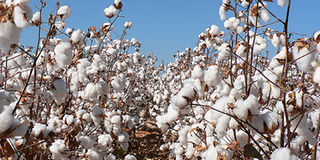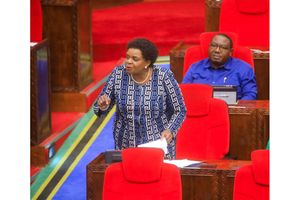Contract farming ‘set to boost cotton production’

What you need to know:
- The value of Tanzania’s cotton exports rose by 55 per cent last year to reach $46.8 million from $30.2 million, according to Bank of Tanzania (BoT) figures. The increase was propelled by increase in both export volume and unit price.
- The TCB director general, Mr Marco Mtunga believes much more is to come, saying in Mwanza for instance, the area planted by cotton has increased by 66 per cent from 69,886 acres in 2015/16 season to 116,110 acres in 2016/17 season.
Mwanza. Cotton yields are set to increase further this year as more and more farmers opt for contract farming (CF), the Tanzania Cotton Board (TCB), has said.
The value of Tanzania’s cotton exports rose by 55 per cent last year to reach $46.8 million from $30.2 million, according to Bank of Tanzania (BoT) figures. The increase was propelled by increase in both export volume and unit price.
The TCB director general, Mr Marco Mtunga believes much more is to come, saying in Mwanza for instance, the area planted by cotton has increased by 66 per cent from 69,886 acres in 2015/16 season to 116,110 acres in 2016/17 season.
Similarly, in Mara, the area has increase by 77 per cent from 43,216 to 76,390 acres.
“While the early season drought has impacted on the actual areas now germinated and established, it is clear that if farmers are assured of support they want to grow cotton,” he said. In contrast, non-contract farming areas have continued to see a decline in areas planted - in some cases by as much as over 60 per cent. Through CF, cotton buyers agree to provide inputs, finance and advice on credit to primary producers of the product in return for having exclusive rights to purchase the crop at harvest time.
While pesticide distribution is still ongoing, there is early evidence that CF areas have already doubled the levels of pesticide distribution that were recorded for the whole of the 2015/16 season for the Mara and Mwanza regions.
This is largely because ginners are procuring their own pesticides independently and not relying on the very limited stocks available from the Cotton Development Trust Fund (CDTF). In non-contract farming areas the reverse is the case and farmers are struggling to obtain the pesticide that they require.




